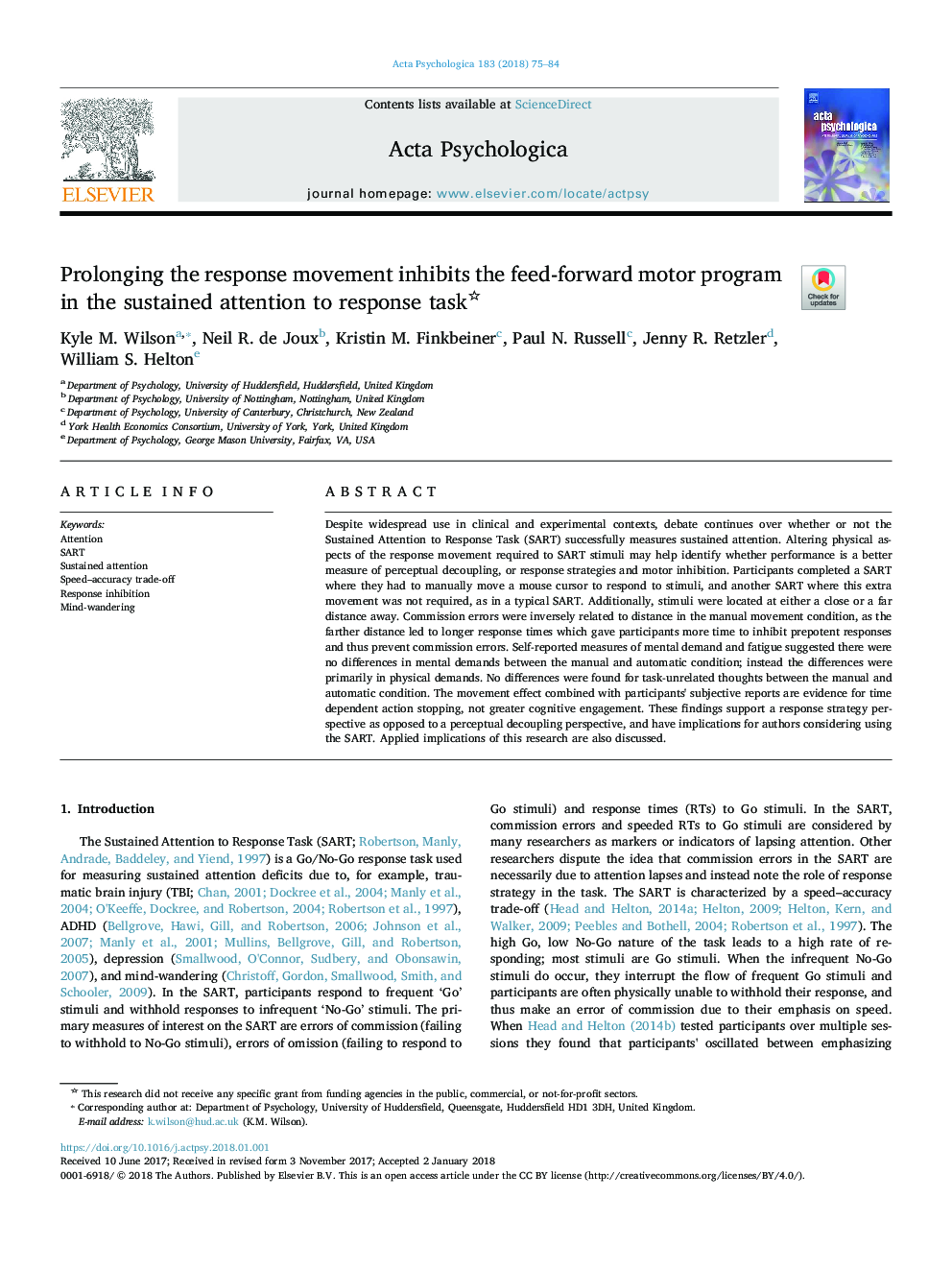| کد مقاله | کد نشریه | سال انتشار | مقاله انگلیسی | نسخه تمام متن |
|---|---|---|---|---|
| 7276848 | 1473575 | 2018 | 10 صفحه PDF | دانلود رایگان |
عنوان انگلیسی مقاله ISI
Prolonging the response movement inhibits the feed-forward motor program in the sustained attention to response task
ترجمه فارسی عنوان
ادامه دادن جنبش پاسخ، جلوگیری از برنامه حرکت موتور به جلو را در توجه مستمر به کار پاسخ می دهد
دانلود مقاله + سفارش ترجمه
دانلود مقاله ISI انگلیسی
رایگان برای ایرانیان
کلمات کلیدی
موضوعات مرتبط
علوم زیستی و بیوفناوری
علم عصب شناسی
علوم اعصاب شناختی
چکیده انگلیسی
Despite widespread use in clinical and experimental contexts, debate continues over whether or not the Sustained Attention to Response Task (SART) successfully measures sustained attention. Altering physical aspects of the response movement required to SART stimuli may help identify whether performance is a better measure of perceptual decoupling, or response strategies and motor inhibition. Participants completed a SART where they had to manually move a mouse cursor to respond to stimuli, and another SART where this extra movement was not required, as in a typical SART. Additionally, stimuli were located at either a close or a far distance away. Commission errors were inversely related to distance in the manual movement condition, as the farther distance led to longer response times which gave participants more time to inhibit prepotent responses and thus prevent commission errors. Self-reported measures of mental demand and fatigue suggested there were no differences in mental demands between the manual and automatic condition; instead the differences were primarily in physical demands. No differences were found for task-unrelated thoughts between the manual and automatic condition. The movement effect combined with participants' subjective reports are evidence for time dependent action stopping, not greater cognitive engagement. These findings support a response strategy perspective as opposed to a perceptual decoupling perspective, and have implications for authors considering using the SART. Applied implications of this research are also discussed.
ناشر
Database: Elsevier - ScienceDirect (ساینس دایرکت)
Journal: Acta Psychologica - Volume 183, February 2018, Pages 75-84
Journal: Acta Psychologica - Volume 183, February 2018, Pages 75-84
نویسندگان
Kyle M. Wilson, Neil R. de Joux, Kristin M. Finkbeiner, Paul N. Russell, Jenny R. Retzler, William S. Helton,
